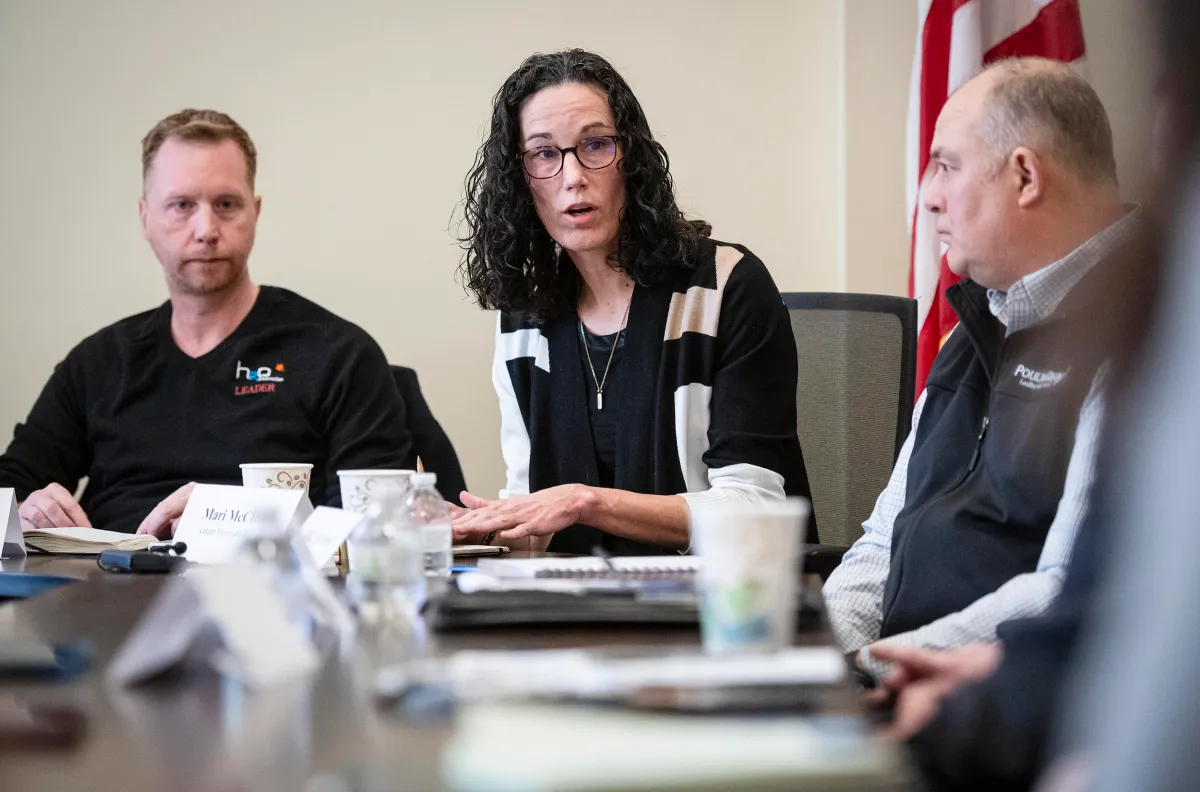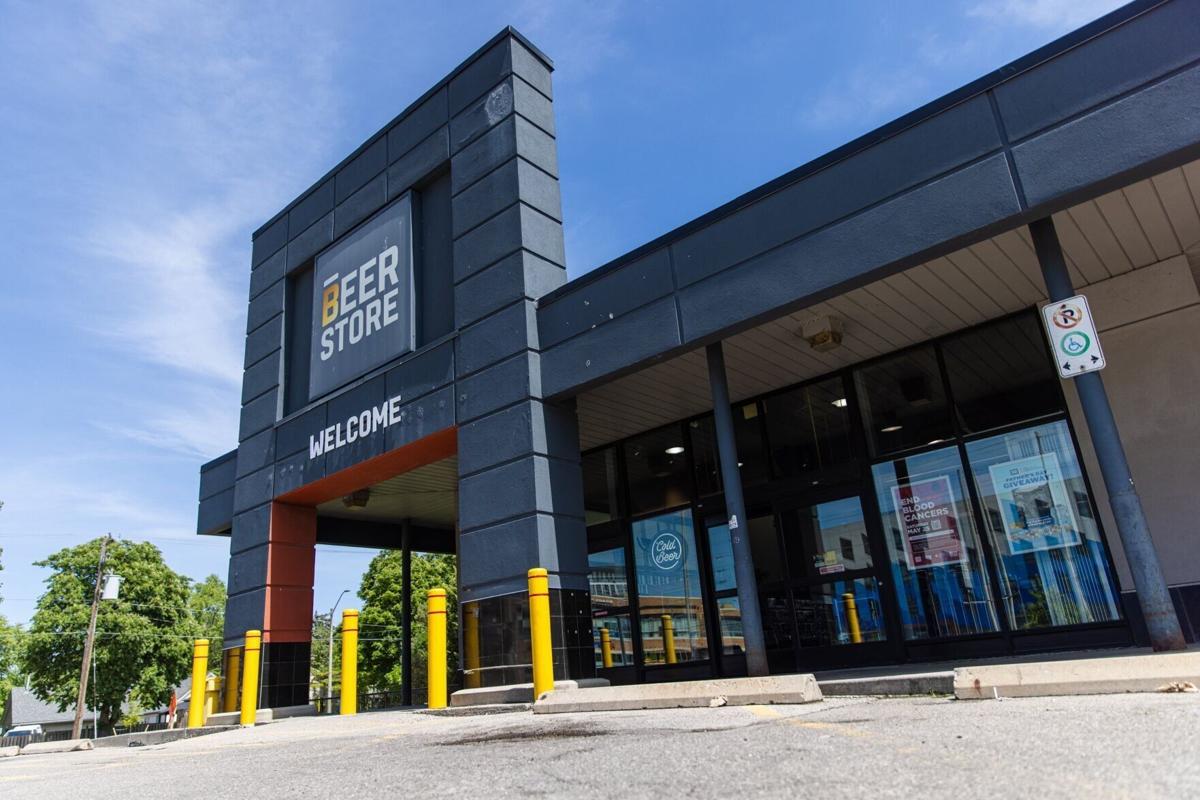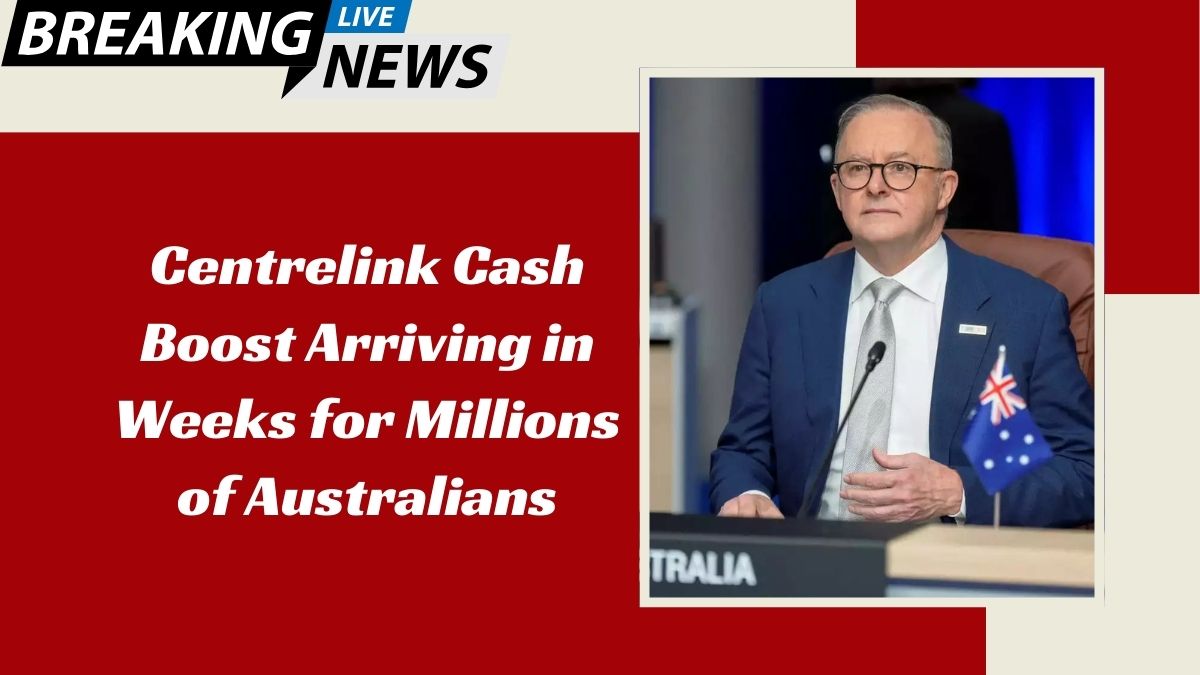Vermont business leaders pan President Donald Trump’s proposed tariffs on imports from Canada
Vermonters are likely to pay more for many goods if the proposal goes into effect, the industry leaders said at a Monday roundtable convened by Sen. Peter Welch, D-Vt.
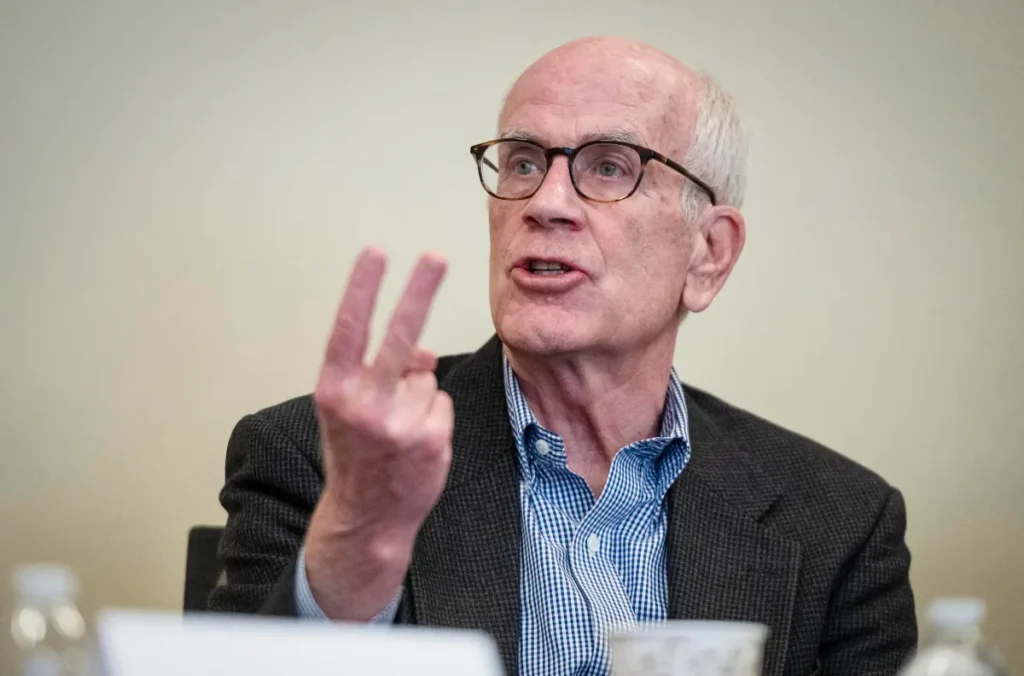
ST. ALBANS — Poulin Grain, an animal feed manufacturer with two plants in northern Vermont, relies on crops imported from Canada, such as corn and oats, to make its products. But the company’s costs would grow substantially — and, perhaps, unsustainably — if President Donald Trump’s proposed 25% tariff on products from Canada goes into effect, Poulin’s senior vice president, Mike Tetreault, said Monday.
The company could start to source some raw materials domestically, Tetreault said, but the materials would cost more, and those costs would be passed on to customers.
“We haven’t got the margins to offset that. The sellers don’t have the margins to offset that. So essentially, the farms and users of our grain products and feed products are going to pay more,” Tetreault said, speaking at a roundtable on Trump’s proposal in St. Albans Monday morning convened by U.S. Sen. Peter Welch, D-Vt.
“There’s no other option,” he added.
Tetreault was one of several leaders of Vermont businesses, along with representatives from trade groups as well as state officials, who voiced concerns to Welch about the impacts the tariffs could have on the costs of local goods and services.
Trump has threatened to impose a 25% tax on goods coming into the U.S. from Canada and Mexico as early as Feb. 1. Right now, both countries have a free-trade agreement with the U.S. by which most goods traded among the three nations don’t have tariffs.

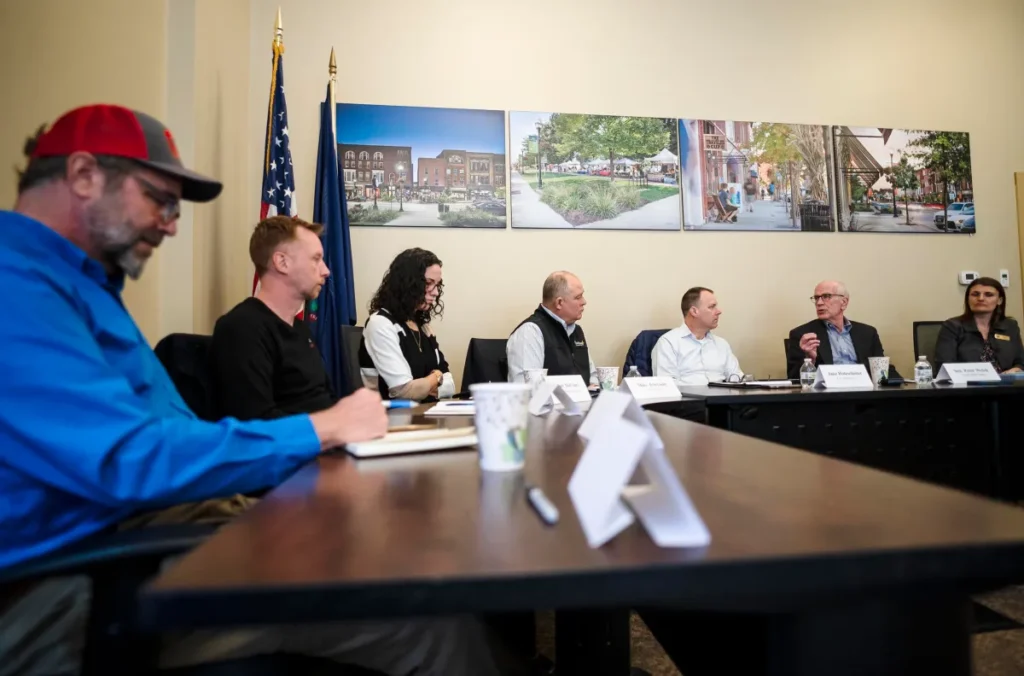
The president told reporters last week that his proposal was a response to Canada and Mexico allowing “mass numbers of people to come in and fentanyl to come in.” While it’s not clear exactly how the tariffs would be implemented, experts generally agree they could disrupt many U.S. industries and raise prices on many goods for consumers.
“The amount of disruption that is going to happen through each of your enterprises is immense,” Welch told the panel, which also included a contract manufacturer in Morrisville and a maple sugaring equipment maker in Swanton, among others.
Rock Gaulin, who leads the maple division for H2O Innovation, said tariffs could protect the company’s U.S.-based operations in the short term, but would ultimately lead to higher prices for the sugarmakers who buy its evaporators and other equipment.
Welch said he was committed to making a case against Trump’s proposed tariffs in Washington D.C. in the coming weeks, including during hearings he expects the Senate Finance Committee, which he sits on, will convene on the issue.
Several speakers said Vermont could feel disproportionate impacts from the proposed tariffs because Canada is, by far, the landlocked state’s largest international trading partner. Like Poulin Grain, many Vermont companies are “so heavily reliant” on cross-border imports of raw materials, noted Amy Spear, president of the Vermont Chamber of Commerce.
Tariffs aimed at Canada could also raise Vermonters’ energy bills, Welch noted, pointing to how the state gets about a quarter of its electricity from Canada’s Hydro-Quebec.
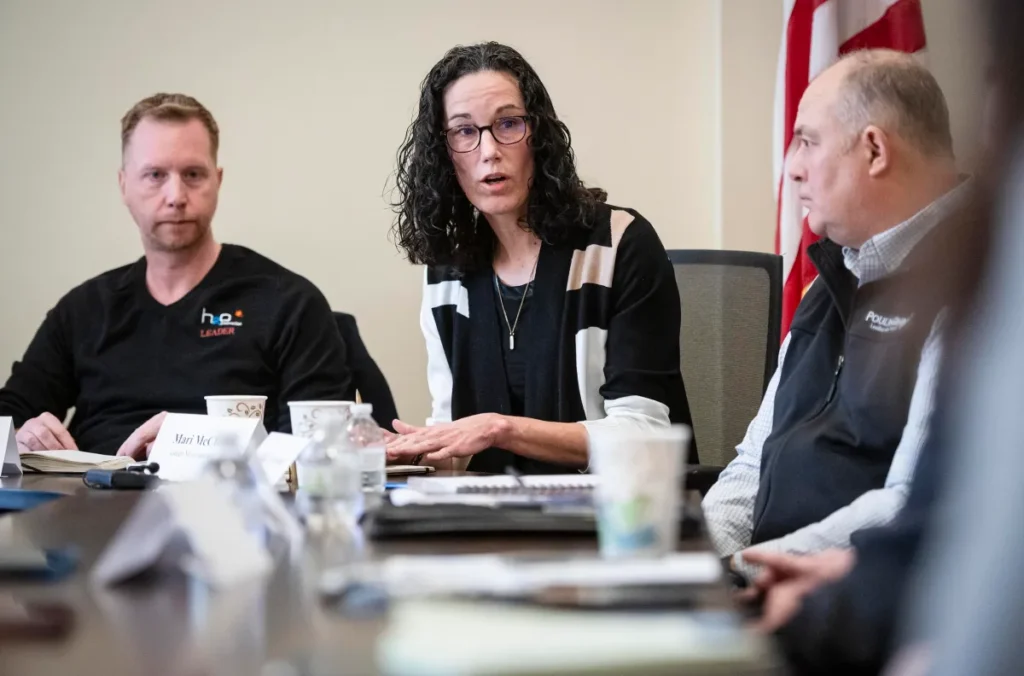
Mari McClure, the president and CEO of Green Mountain Power — Vermont’s largest electric company — estimated that Trump’s proposed tariff on goods from Canada could result in an additional $16 million per year in power costs, which she said would, with limited exception, go “directly to ratepayers.”
Still, McClure and other speakers noted that it’s impossible to say with certainty what the impact would be because details of Trump’s proposals haven’t been clear nor is it clear that the tariffs would even take effect on Feb. 1.
That’s made it difficult for businesses to prepare in recent weeks, some said. Sarah Mearhoff, advocacy and communications director for the trade association representing Vermont’s construction industry, pointed to how some contractors could, for instance, spend money now to stockpile timber only to later realize that it was unnecessary.
“At one point they thought they would have tariffs on day one — and now it’s saying Feb. 1,” said state Treasurer Mike Pieciak, referring to the first day of Trump’s presidency. “I think there’s a question mark for businesses as to, will they ever come? Is this real or is this not real?”
